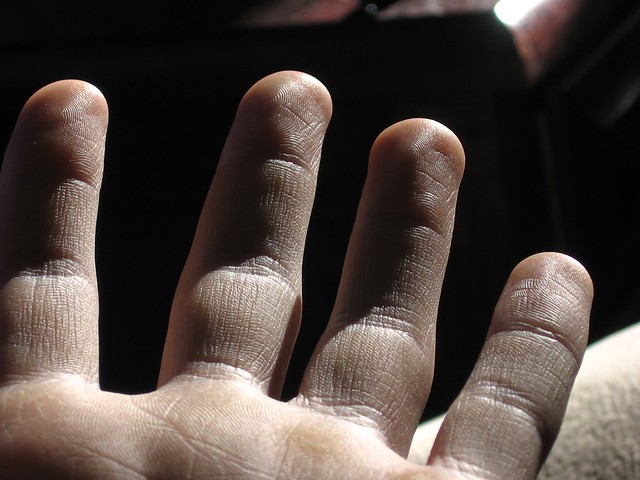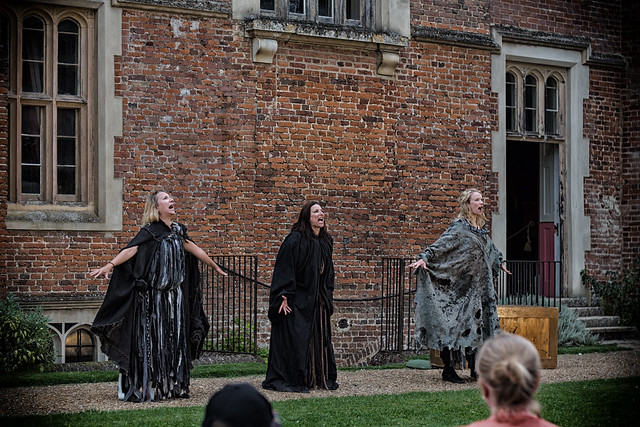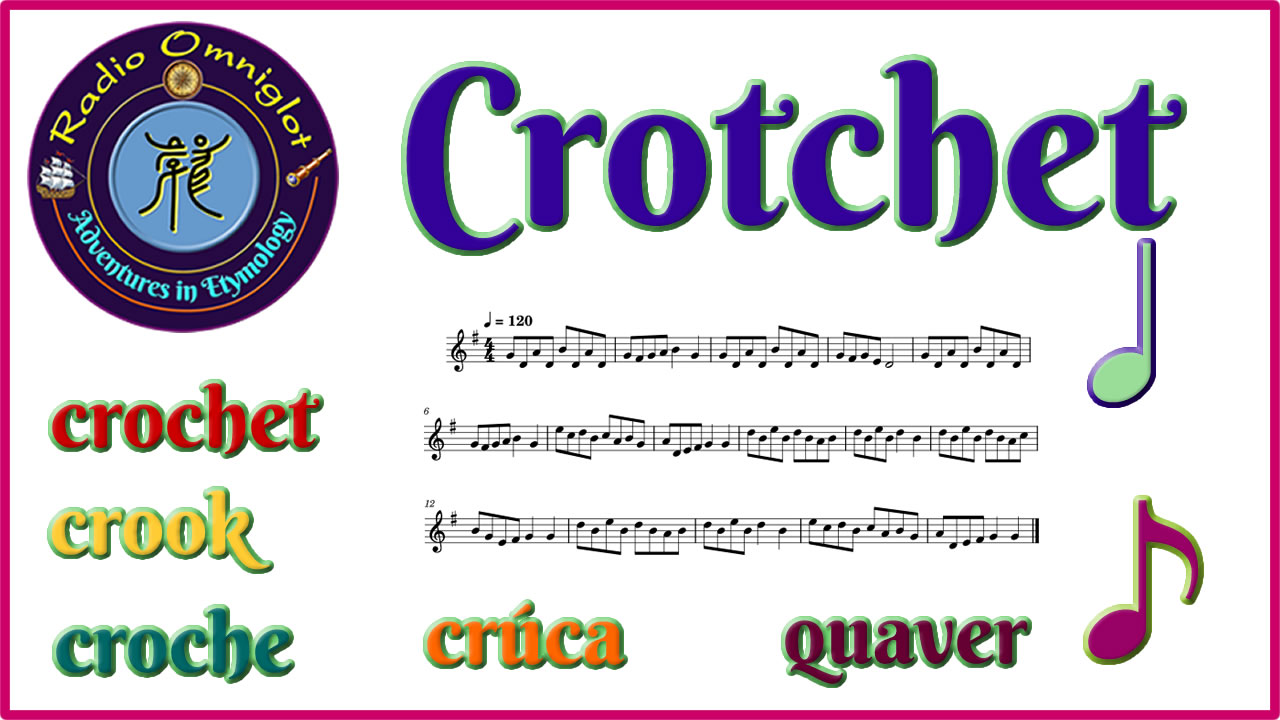Podcast: Play in new window | Download
In this adventure, we’re poking the origins of the word finger.
A finger is:
- A slender jointed extremity of the human hand, (often) exclusive of the thumb.
- Similar or similar-looking extremities in other animals.
It comes from Middle English fynger (finger, toes), from Old English finger (finger), from Proto-West-Germanic *fingr (finger), from Proto-Germanic *fingraz [ˈɸiŋ.ɡrɑz] (finger), probably from PIE *penkʷrós, from *pénkʷe (five) [source].
Words from the same Proto-Germanic roots include vinger (finger) in Dutch, Finger (finger) in German, and finger (finger) in Danish, Norwegian and Swedish [source].
Words from the same PIE roots include five, fist, pentagon (and other words beginning with penta-) in English, and words for five in most Indo-European languages [source]
Incidentally, the name of the Roman town of Pompeii, which was destroyed in an eruption of Vesuvius in AD 79, also comes from the same roots, via the Oscan word 𐌐𐌖𐌌𐌐𐌄 (pumpe – five), a reference to its five districts [source].
You can also listen to this podcast on: Apple Podcasts, Amazon Music, Stitcher, TuneIn, Podchaser, PlayerFM or podtail.
If you would like to support this podcast, you can make a donation via PayPal or Patreon, or contribute to Omniglot in other ways.
Radio Omniglot podcasts are brought to you in association with Blubrry Podcast Hosting, a great place to host your podcasts. Get your first month free with the promo code omniglot.
I also write about words, etymology and other language-related topics on the Omniglot Blog, and I explore etymological connections between Celtic languages on the Celtiadur.











